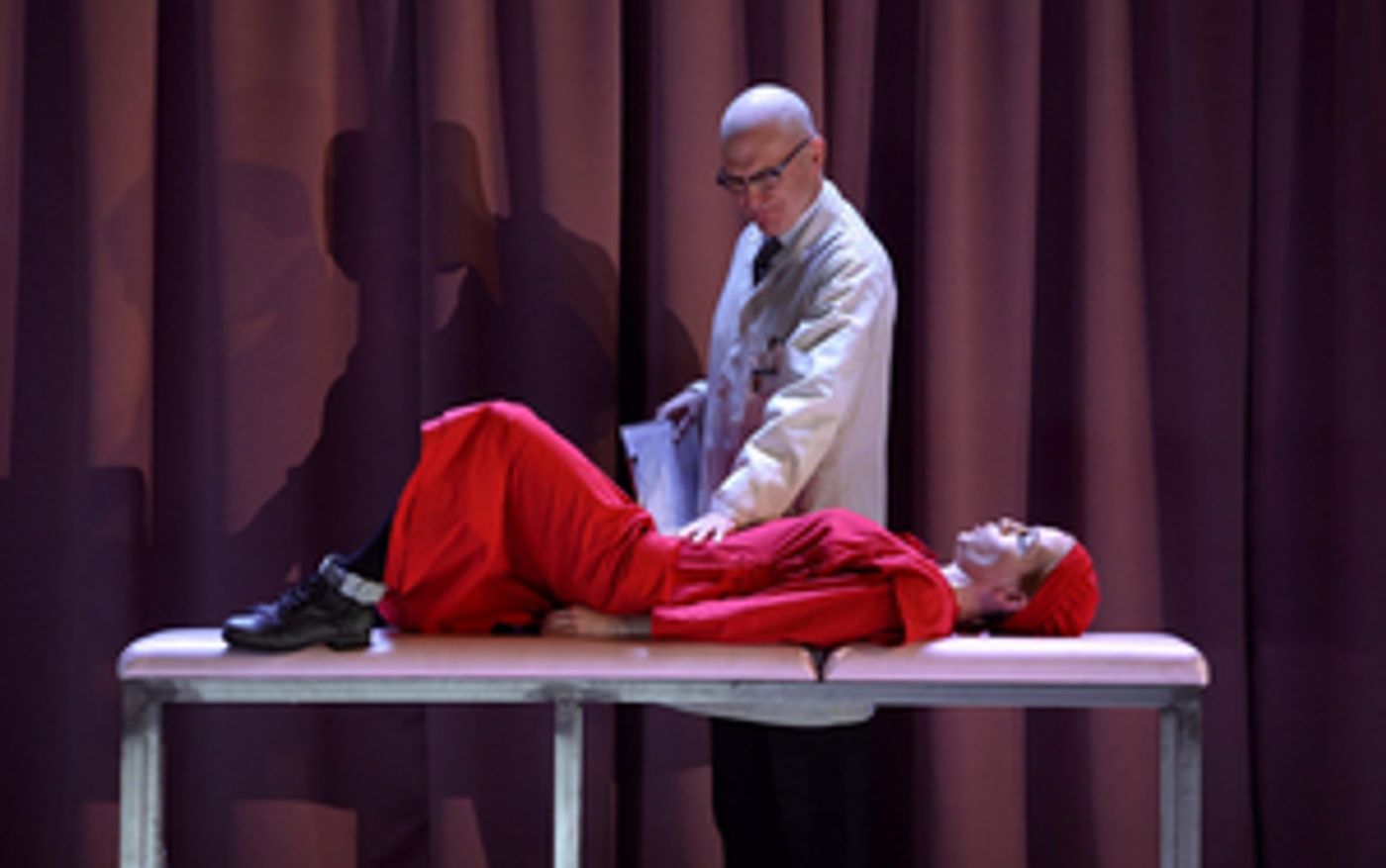Review: THE HANDMAID'S TALE, English National Opera
This production runs until 14 April.

![]() Poul Ruder's 1998 operatic take on The Handmaid's Tale takes flight once again at the English National Opera, featuring a new production and the West End debut of Camille Cottin (Killing Eve, Call My Agent).
Poul Ruder's 1998 operatic take on The Handmaid's Tale takes flight once again at the English National Opera, featuring a new production and the West End debut of Camille Cottin (Killing Eve, Call My Agent).
On paper, opera and Margaret Atwood's The Handmaid's Tale should make a fine pairing. The novel takes place in a downbeat dystopia where women are seen as little more than disposable chattel who often come to a bad end while, as an art form, opera excels in killing off its heroines as they leap to their death (Tosca), are sealed off in a vault (Aida), stabbed (Carmen, Rigoletto), die of tuberculosis (La bohème, La Traviata) or are trapped on a mountainside and left to be abused by passersby (The Valkyrie).
Helmed by Annilese Miskimmon, Ruder's minimalistic music, together with Paul Bentley's libretto, brings to grim life the horrors of Atwood's Republic of Gilead. A vision of the United States overtaken by extreme Christians, its mission to reverse the falling birthrate sees many women turned into Handmaidens, little more than baby factories for childless families. Other women become Marthas (housekeepers), Aunts (who run the Red Centre indoctrinating new Handmaidens) or prostitutes at illicit brothels. The threat of public execution or being sent to the colonies forever hangs over the heads of all but the privileged.
The first half can fairly be called misery porn. After an opening preamble hosted by Cottin in a brilliant white suit, we are introduced to Offred (a moving Kate Lindsey) as she is moved through the Red Centre into the home of her planned impregnator, the Commander (imperiously played by Robert Hayward), and his wife, Avery Amereau's Serena Joy.
Flashbacks (shown as projections on a half-height curtain) detail the tragedies that led to Offred's present predicament. Scene after relentless scene builds on the physical, mental and emotional pain heaped on Gilead's less fortunate with the Danish composer's palpitating use of percussion and insistent high notes adding to the dramatic tension. If you didn't suffer from anxiety before you came in, you probably will have by the interval.
The second half is a little lighter with even some comedy thrown in for good measure. The complex relationships between Offred and those in her household, all of whom have their own agenda, are explored and come to a head with unsurprisingly tragic consequences. Bentley's libretto is more prosaic prose than poetry with contemporary language used throughout - much of what Offred says lacks subtext or depth. Those unfamiliar with Atwood's book or the TV series may feel slightly lost due to the scattershot approach to the plot; at the last, Offred apologises for the fragmented nature of her story, but this frankly feels like a copout.
Since Miskimmon took over as AD from Daniel Kramer in 2019, this is her first time directing an opera at the Coliseum and is, therefore, something of a statement of intent. As such, there is much to laud here, not least in terms of female participation (both in terms of cast and creatives).
One of her favourite sayings is "A ship is safe in harbour, but that's not what ships are for." With The Handmaid's Tale, she has definitely, and bravely, pushed the ship out far out into wide blue yonder with something contemporary and deeply emotive but unlikely to appeal to the casual operagoer or those unused to (or unappreciative of) Ruder's minimalistic approach. As an artistic director, Miskimmon has been a boon to the ENO since arriving; as a director, we look forward to seeing where she goes to from here.
The Handmaid's Tale continues at the English National Opera until 14 April.
Image: Catherine Ashmore
Reader Reviews
Powered by
|
Videos

